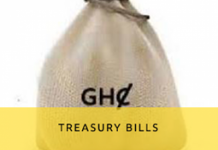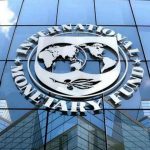Last month, the U.S. outpaced Russia to secure the contract for Ghana’s inaugural small modular nuclear reactor, a deal that highlights Washington’s emphasis on its technology over lower-cost financing, even as the West African nation explores various options for the future.

An agreement between Nuclear Power Ghana and Regnum Technology Group, which employs technology from NuScale Power LLC, successfully outperformed competitors, including Russia’s state-owned nuclear company, Rosatom Corp.
Joshua Volz, a Department of Energy official, acknowledged during a September 7 interview in Cape Town that the U.S. is aware of the financing challenges that Western technology faces compared to Rosatom’s offering.
“Our Ghanaian partners recognize the more substantial value proposition of a long-term relationship with the United States, which extends beyond just the immediate financing of this asset,” he stated.
In recent years, the U.S. and Russia have competed to launch nuclear projects across Africa, part of a larger contest for influence in the resource-rich region, where Moscow’s presence has grown at the West’s expense.
Rosatom is reportedly attempting to acquire uranium assets in Niger from a French-controlled company, is constructing a plant in Egypt, and signed a deal with Guinea in June. The Russian company also proposed a project to officials in Accra, Ghana’s capital, in May, according to its website.
Volz mentioned that the U.S. is collaborating with Kenya on nuclear and geothermal energy projects that utilize technology developed in American oil and gas sectors.
“We aim for a broader, deeper, and richer relationship, and if energy can serve as a foundation and entry point for that relationship, we welcome it,” he remarked, noting that the U.S. Export-Import Bank and Development Finance Corporation are also involved.
In Ghana, while financing discussions are underway, the country may still consider other options for nuclear power, according to Deputy Energy Minister Herbert Krapa. He mentioned the potential for exploring different projects, including those with Chinese developers.
Funding energy projects will remain a significant concern for Ghana, which recently secured support from international bondholders to restructure $13 billion of its debt.
Small modular reactors (SMRs) are expected to be less efficient in electricity generation compared to larger reactors. A Department of Energy report released this month indicated that the median kilowatt price for a small reactor is over 50% higher than that of traditional units.
NuScale, the only small modular reactor licensed by U.S. regulators, halted its sole project last November after costs escalated. Initially estimating average generation costs at $55 per megawatt hour in 2016, newer estimates indicate costs have surged to nearly $120 per megawatt due to soaring prices for commodities such as steel, carbon fiber, and copper.
Regnum did not immediately respond to inquiries about any projects it has completed or is developing.
“Rosatom considers African countries, especially Ghana, as strategic partners for developing sustainable energy solutions, including Small Modular Reactors,” the company stated in an email response.
























































![[FREE FREE MONEY] Predict and Win a Guaranteed GH¢200 From Us EVERY WEEK](https://wordpress.ghanatalksradio.com/wp-content/uploads/2022/02/Predict-and-Win-Final-09-03-2021-218x150.jpg)
![[Predict & Win – 8th/Oct.] WIN A Guaranteed ¢200 From Us This Week](https://wordpress.ghanatalksradio.com/wp-content/uploads/2021/10/maxresdefault-16-218x150.jpg)
![[Predict & Win – 2nd] WIN A Guaranteed ¢200 From Us This Week](https://wordpress.ghanatalksradio.com/wp-content/uploads/2021/09/maxresdefault-50-218x150.jpg)
![[Predict & Win – 25th] WIN A Guaranteed ¢200 From Us This Week](https://wordpress.ghanatalksradio.com/wp-content/uploads/2021/09/maxresdefault-36-218x150.jpg)
![[Predict & Win – 18th] WIN A Guaranteed ¢200 From Us This Week](https://wordpress.ghanatalksradio.com/wp-content/uploads/2021/09/maxresdefault-23-218x150.jpg)







![[National cathedral] See full list of churches that have contributed since 2018](https://wordpress.ghanatalksradio.com/wp-content/uploads/2020/09/Ghana-National-Cathedral-GhanaTalksRadio-100x70.jpg)



![Akufo-Addo’s second-term inaugural address – [FULL TEXT]](https://wordpress.ghanatalksradio.com/wp-content/uploads/2021/01/96492098-100x70.jpg)